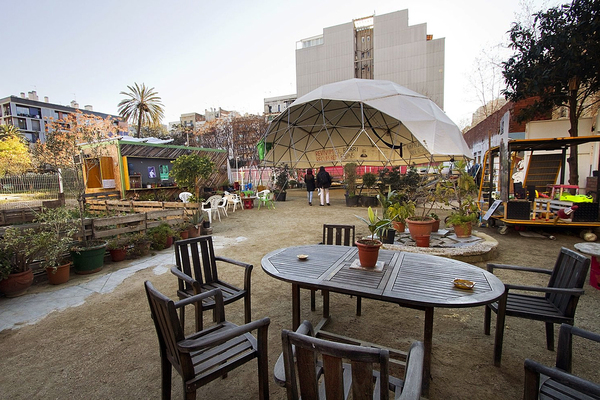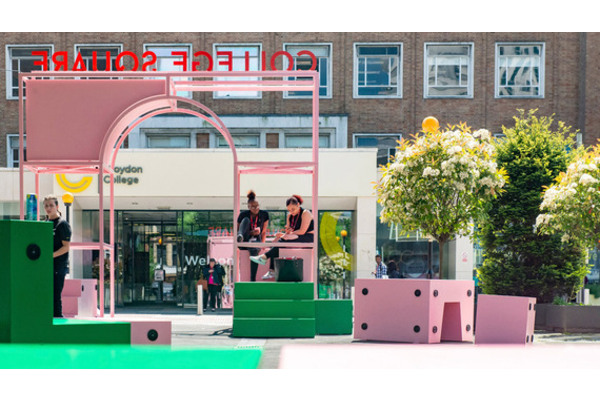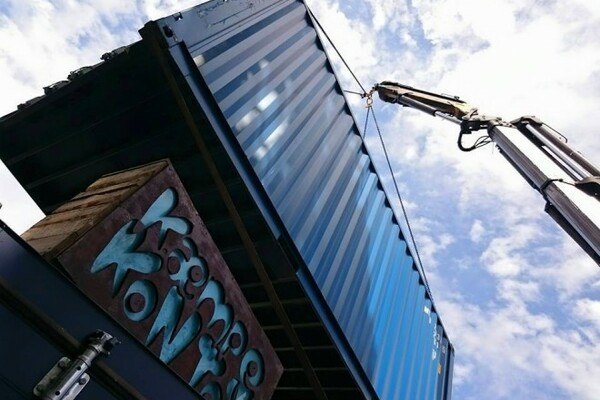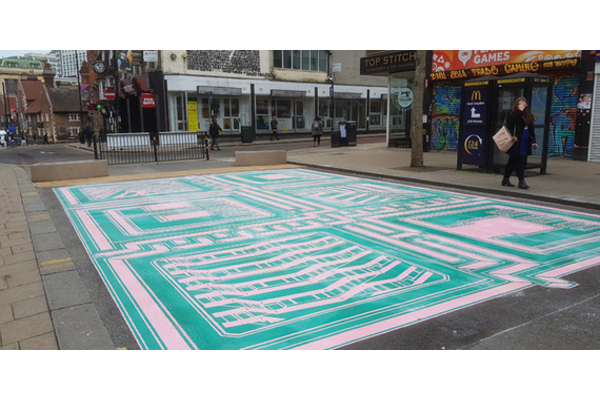Project status: active
Period: 2013 -
Site's previous use: public buildings, development sites
Meanwhile use: gardens and allotments, public green spaces, arts and culture, other [educational activities, meeting place for neighbours, book and farmers market]
Initiator: [other] synergy of locals’ initiative and municipality’s temporary use scheme
Value: social, arts and culture, community, natural environment, public space
Ownership and lease: owned by the Eixample District and initially leased for free for 3 years to Recreant Cruilles (subject to yearly renewal)
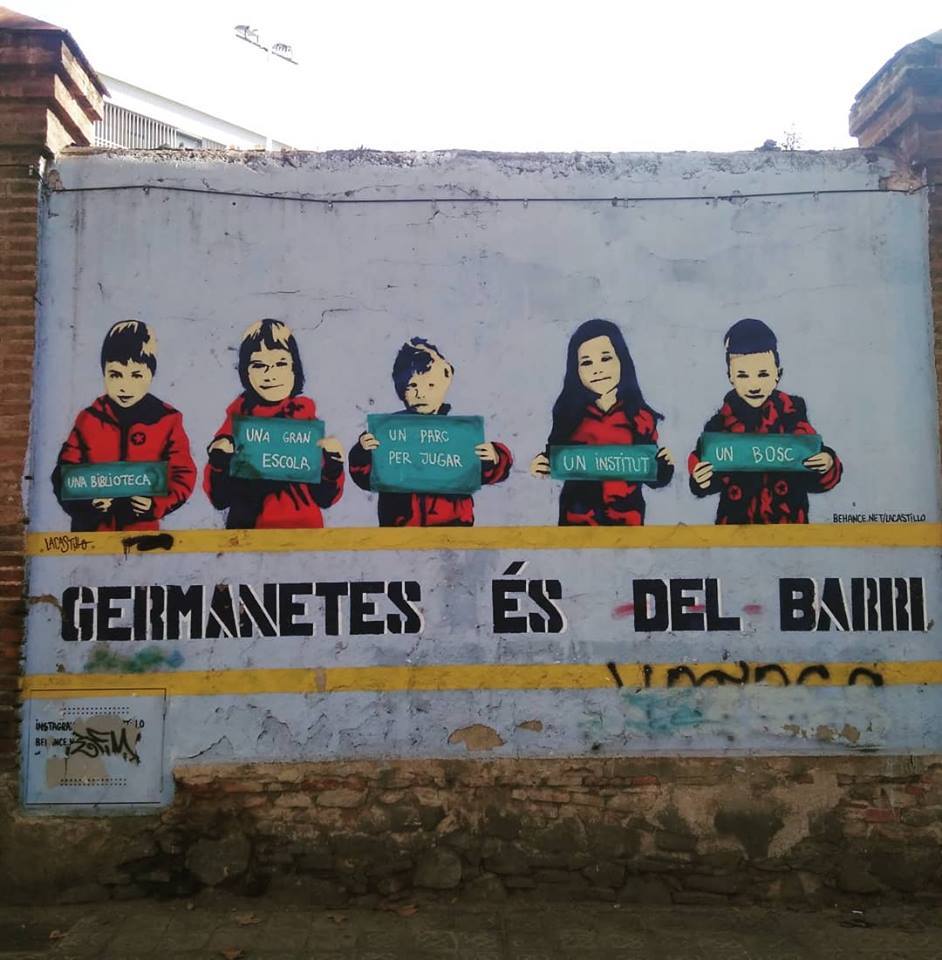
Source: Jardins d'Emma Facebook page
Pla BUITS was Barcelona’s initiative to incorporate meanwhile use into its planning system. The municipality organised two competitions for local groups to temporarily access and use publicly owned spaces. The aim was twofold:
- to facilitate the involvement of the civil society in the regeneration and revitalization of the urban fabric, and
- to transform citizen-users into citizen-participants.
Around 20 plots, owned by Barcelona’s different districts, were offered for a temporary lease of 3 years, subject to yearly permit renewal.
One of these plots was Espai Germanetes, a superblock which measures over 5500m and which used to host the Convent of the Sisters of the Poor. Closed in 2001 and demolished three years later, the building left a large space with enormous potential for the densely built Eixample District. The city took over its ownership in 2006 and planned to redevelop it by building several facilities that the neighbourhood was in need of: a day care centre, a nursery, a secondary school and apartments for young and senior people. However, Barcelona was severely hit by the 2007 real estate crisis, and the plot ended up vacant until 2012. For this reason, 585m² of the total space were included in the Pla BUITS project.
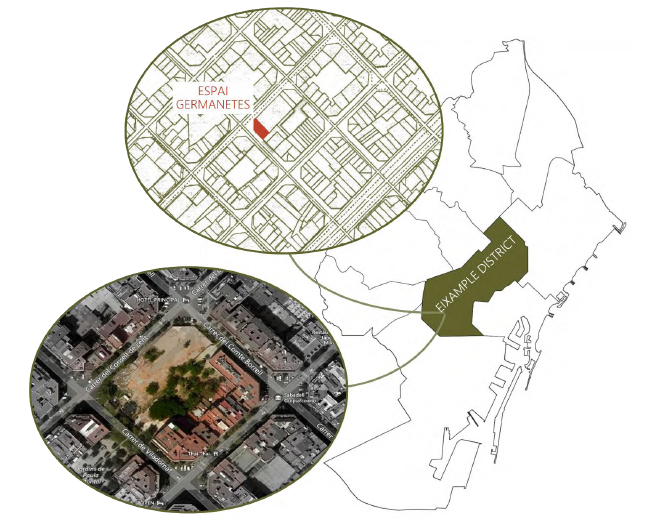
Source: Axinte, L. (2015). Formalising the informal temporary use of vacant spaces.
Recreant Cruïlles – a group of local activists who had been removed from the 15M protests and re-organised as a neighbourhood assembly – had long planned to occupy this space. This citizen’s initiative had been advocating for ‘a more human urbanism’ and supported public participation, activism and urban space regeneration.
The group submitted a project in the Pla BUITS competition and won with a proposal built on five main pillars:
- creating a community garden
- arranging a multifunctional space for physical activities
- pedestrianizing the adjacent streets and calming down traffic
- claiming the educational community (the insufficient number of schools left 800 children out of the public system, obliging parents to pay for their education in private facilities)
- providing enough space for cultural and social activities to take place
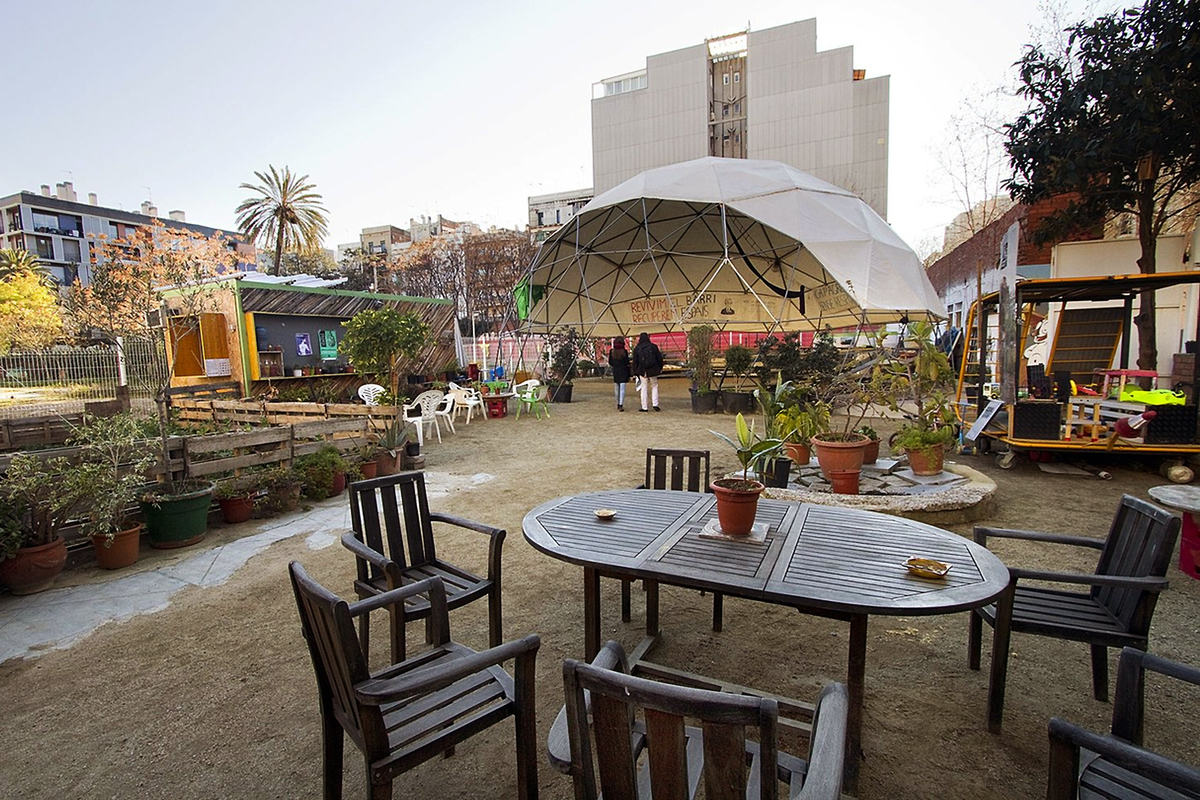
Source: straddle3
Despite the space limitations, the project was very successful and attracted a lot of interest from locals. Besides the community garden, the neighbourhood meetings and the educational activities, Espai Germanetes also accommodated a book and a farmers’ market.
Recurrent internal conflicts – between the Eixample District and Recreant Cruilles, as well as among the members of Recreant Cruilles themselves – jeopardized the project. Nonetheless, the project has evolved tremendously and today, members of Recreant Cruilles and a number of other local organisations have created the Jardins d’Emma Association. Supported by the City of Barcelona, the association is redeveloping and managing most of the plot. Their projects follow the initial aims, emphasising urban ecology, de-carbonisation, active citizenship and access to education.
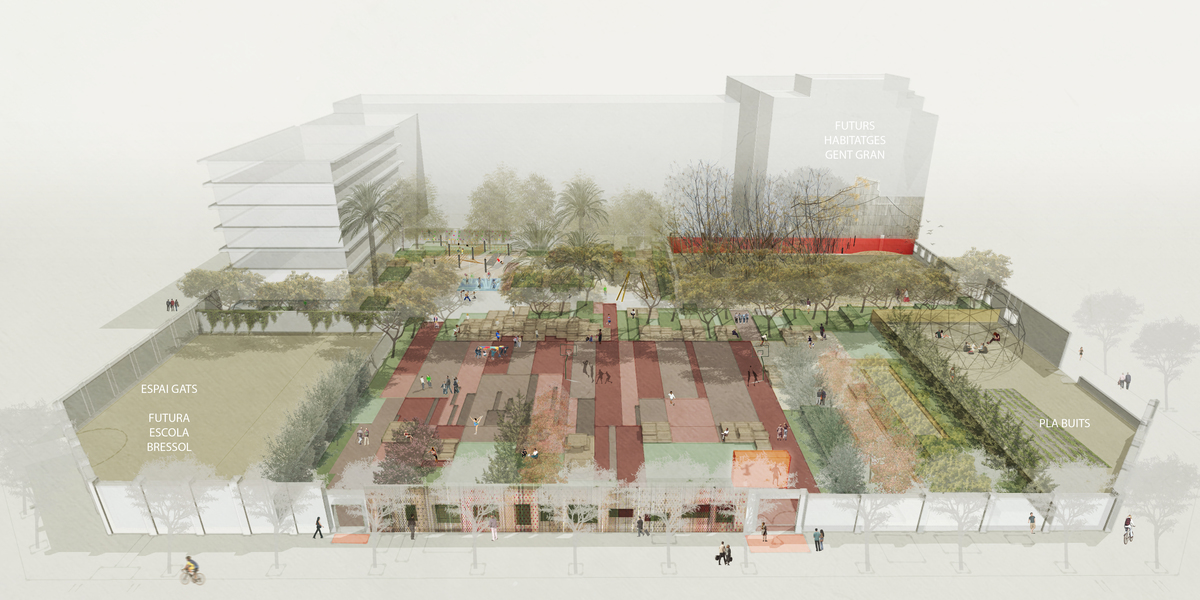
Source: EMF
This Spanish case study is a great example of citizen self-organisation and place-sensitive development. Besides, it proves that dialogue and flexibility between citizens and local authorities can lead to successful collaborations.
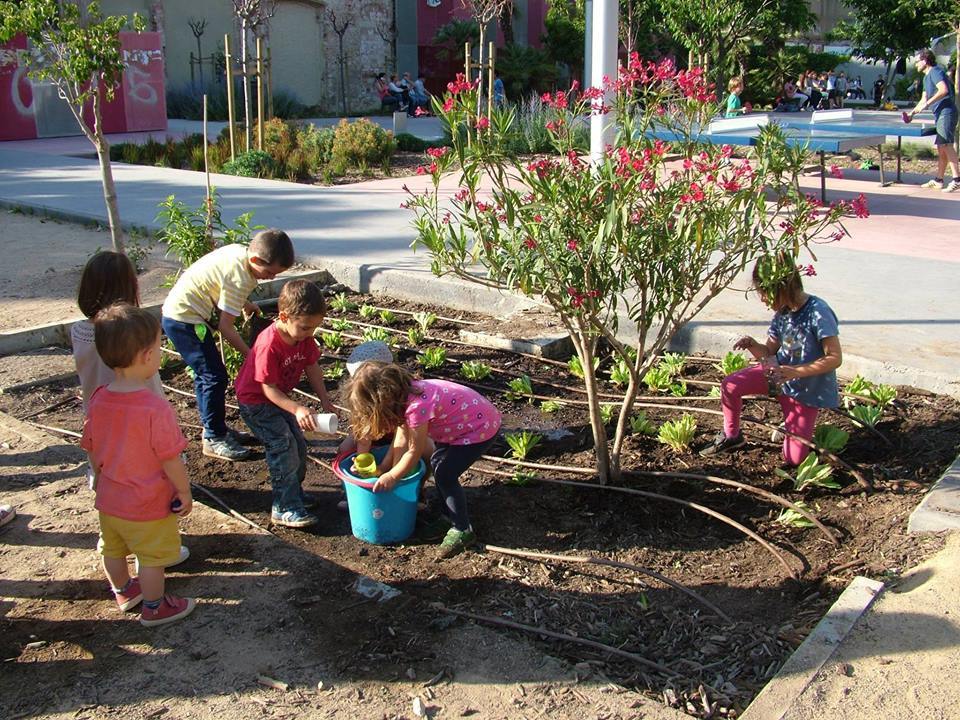
Source: Jardins d'Emma Facebook page
Written by Lorena Axinte
To see the project's current development, check Jardins d'Emma website and Facebook Page

